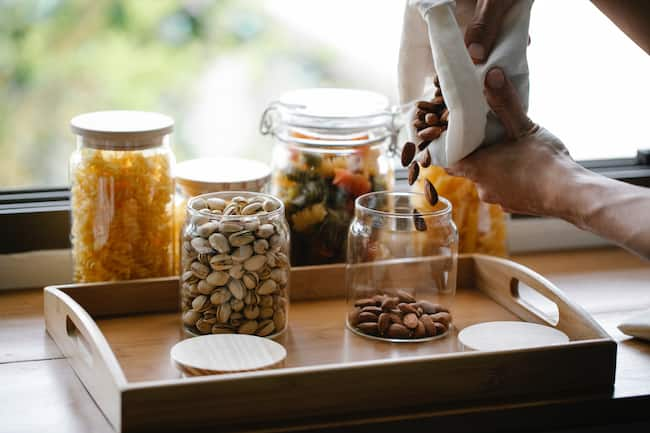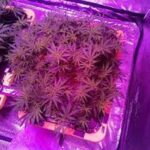What Are The Advantages Of Seed Bank?
There are many advantages to having a seed bank, including the following:
1. A seed bank provides a backup stock of seeds in case of crop failure or pests and diseases.
2. A seed bank can help to preserve genetic diversity by storing seeds from different varieties of crops.
3. A seed bank can be used to research the genetics of crops and develop new varieties that are more resistant to pests and diseases or have higher yields.
4. A seed bank can provide a source of income for farmers as they can sell their surplus seeds to the bank.
5. A seed bank can be used to distribute seeds to farmers in developing countries who may not have access to high-quality seeds.
How many seed banks are there in India?
Table of Contents
There are many seed banks in India, including the following:
1. The Indian Council of Agricultural Research (ICAR) – National Bureau of Plant Genetic Resources (NBPGR)
2. The Central Potato Research Institute (CPRI)
3. The National Seeds Corporation (NSC)
4. The Tamil Nadu Agricultural University (TNAU)
5. The Kerala Agricultural University (KAU)
6. The Mahatma Gandhi Institute of Agricultural Sciences (MGRIAS)
7. The Orissa University of Agriculture and Technology (OUAT)
8. The Punjab Agricultural University (PAU)
9. The Uttar Pradesh Rajarshi Tandon Open University (UPRTOU)
10. The Chhattisgarh University of Agriculture and Technology (CUAT)
How many seed banks are there?
There are many seed banks around the world, including the following:
1. The Svalbard Global Seed Vault in Norway
2. The International Rice Research Institute (IRRI) in the Philippines
3. The Millennium Seed Bank at Wakehurst Place in the UK
4. The U.S. National Seed Storage Laboratory in Colorado
5. The Kew Gardens Millennium Seed Bank in the UK
6. The Australian Grains Genebank in Victoria
7. The Canadian Conservation Crops Germplasm Repository in Ottawa
8. The World Vegetable Center in Taiwan
9. The International Maize and Wheat Improvement Center (CIMMYT) in Mexico
10. The Global Crop Diversity Trust headquarters in the Rome
What is interesting about Svalbard?
The Svalbard Global Seed Vault is located on the Norwegian island of Spitsbergen, which is in the Arctic Ocean. It was opened in 2008 and is operated by the Norwegian government. The vault is designed to store seeds from crops that are at risk of extinction due to climate change, pests, or diseases. The vault currently holds more than 930,000 seed samples from around the world.
What is the national seed bank?
The National Seed Bank is a seed bank located in the United States. It was established in 2004 and is operated by the U.S. Department of Agriculture. The seed bank stores seeds from crops that are native to the United States. These seeds are used to restore or create new populations of plants if they become extinct or are at risk of extinction.
How are seeds stored in seed banks?
Seeds are stored in seed banks using a variety of methods, including the following:
1. Refrigeration: Seeds are stored at low temperatures to prevent them from germinating.
2. Deep freezing: Seeds are stored at very low temperatures (usually -20°C or below) using liquid nitrogen.
3. Vacuum packing: Seeds are packed in airtight containers to prevent them from drying out.
4. Gamma irradiation: Seeds are exposed to high levels of radiation to kill any insects or diseases that may be present.
5. Chemical treatment: Seeds are treated with chemicals to prevent them from germinating.
How long do seeds last in seed banks?
Seeds can last for many years in seed banks, depending on the storage conditions. For example, seeds that are stored at -20°C can last for more than 50 years. Seeds that are stored at -196°C can last for more than 500 years.
Will 20-year-old seeds grow?
20-year-old seeds can grow, but it is not guaranteed. The age of the seed, storage conditions, and species of plant all play a role in determining whether or not a seed will germinate. If you have 20-year-old seeds that you would like to plant, it is best to consult with a professional before doing so.
Can I store the seeds in the fridge?
Yes, you can store seeds in the fridge. However, it is important to note that not all seeds will survive storage in the refrigerator. For example, some seeds must be stored at shallow temperatures to remain viable. Additionally, the humidity level in the refrigerator can also affect seed viability. If you are unsure whether or not your seeds will survive storage in the refrigerator, it is best to consult with a professional before doing so.
Where is the largest seed bank in the world?
The Svalbard Global Seed Vault is the largest seed bank in the world. It is located on the Norwegian island of Spitsbergen, which is in the Arctic Ocean. The vault currently holds more than 930,000 seed samples from around the world.












